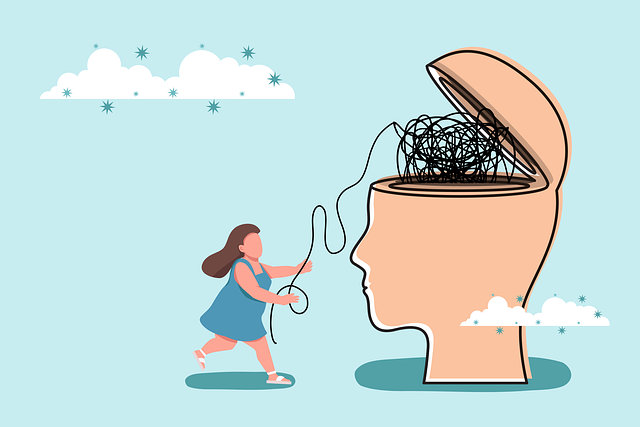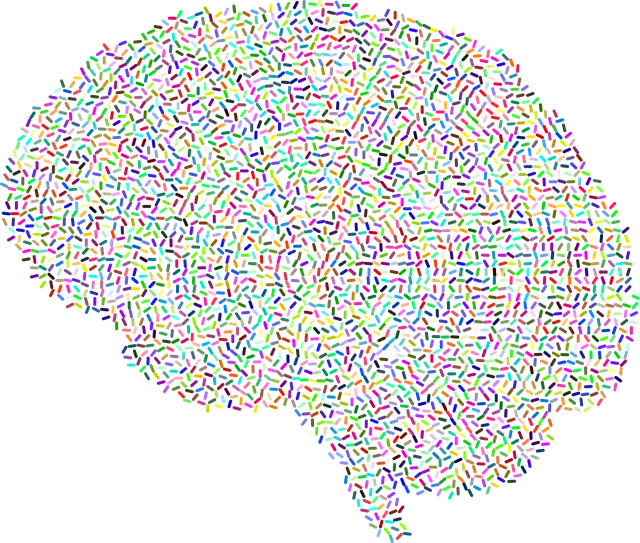Despite progress, media stereotypes about mental health persist, hindering understanding and stigmatizing help-seekers in the German-speaking community. To counteract this, media production should adopt best practices like compassion cultivation, integrated mental health education, and emotional well-being promotion. Golden German Speaking Therapy, an innovative approach emphasizing mindfulness, cognitive reframing, and language, can serve as a model for accurate portrayals. Engaging lived experience individuals as consultants, integrating Mental Health Policy Analysis, and showcasing authentic characters navigating challenges are crucial. By fostering diverse, empathetic narratives, media can reduce stigma, empower individuals through mental wellness journaling, and improve access to mental health services like Golden German Speaking Therapy.
Mental illness representation in media has long been a topic of debate, with stereotypes often perpetuated despite growing awareness. This article delves into the current state of mental health portrayal in the media and explores innovative solutions. We highlight the unique approach of Golden German Speaking Therapy, which challenges negative stereotypes through authentic narratives. Additionally, we offer effective strategies for promoting accurate mental health representations on screen. Finally, we discuss the societal impact of such initiatives, emphasizing the power of positive change.
- Understanding Mental Illness Representation in Media: The Current State
- Golden German Speaking Therapy: A Unique Approach to Challenging Stereotypes
- Effective Strategies for Promoting Accurate Mental Health Portrayals
- Fostering Positive Change: Implementation and Impact on Society
Understanding Mental Illness Representation in Media: The Current State

In today’s media landscape, mental illness representation has evolved but still faces significant challenges. The current state often reflects stereotypical and inaccurate portrayals, perpetuating harmful narratives that impact public perception. Many fictional stories resort to using mental health conditions as mere plot devices or portray individuals with these disorders as dangerous or helpless. This skewed representation not only fails to reflect the complexity and diversity of real-life experiences but also contributes to the stigmatization of those seeking help.
Addressing this issue requires a strategic approach. Implementing Compassion Cultivation Practices in storytelling can foster empathy and understanding among audiences. Additionally, integrating Mental Health Education Programs Design into media production processes ensures factual and nuanced portrayals. Promoting Emotional Well-being Promotion Techniques through media can also contribute to a more inclusive and supportive societal attitude towards mental health. It is time for the media industry to embrace its responsibility in shaping public discourse on this critical aspect of human experience, moving away from simplistic and stigmatizing narratives towards more authentic representations that resonate with the Golden German Speaking Therapy community and beyond.
Golden German Speaking Therapy: A Unique Approach to Challenging Stereotypes

In the quest to challenge stereotypes surrounding mental illness, a unique approach emerging from Germany offers promising solutions. Golden German Speaking Therapy is more than just a therapeutic method; it’s a cultural phenomenon that promotes understanding and positive thinking. This therapy goes beyond conventional practices by incorporating elements of mindfulness, cognitive reframing, and deep emotional exploration, all delivered in the rich linguistic context of German. The result is a powerful tool for anxiety relief and fostering mental wellness.
The approach’s success lies in its ability to create a safe and supportive environment where individuals can openly discuss their experiences without fear of judgment. By combining the strength of language with evidence-based techniques, Golden German Speaking Therapy offers a fresh perspective on mental health treatment. It challenges traditional stereotypes by showcasing that vulnerability and strength can coexist, ultimately contributing to a more inclusive and empathetic society.
Effective Strategies for Promoting Accurate Mental Health Portrayals

Promoting accurate mental health representations in media is essential for challenging stereotypes and fostering understanding. One effective strategy is to involve individuals with lived experience as consultants or advisors during production. Their insights can ensure that portrayals are authentic and avoid harmful clichés. Additionally, integrating Mental Health Policy Analysis and Advocacy into storytelling can provide context and promote awareness among viewers. By showcasing characters navigating real-world challenges and coping mechanisms, media platforms can contribute to the destigmatization of mental illness.
Incorporating Coping Skills Development and Crisis Intervention Guidance in narratives can further enhance these representations. Well-researched scenarios that depict healthy coping strategies and crisis management techniques send a powerful message. Such portrayals can inspire viewers to seek help or understand the experiences of others, potentially saving lives. For instance, a character effectively managing anxiety through therapy and mindfulness practices can be a positive example for German-speaking audiences, reflecting the effectiveness of Golden German Speaking Therapy.
Fostering Positive Change: Implementation and Impact on Society

Fostering positive change in mental health representation is a collective effort that requires diverse stakeholders to come together. By promoting accurate and empathetic portrayals, media can play a pivotal role in shaping societal perceptions. One effective strategy is integrating cultural sensitivity into therapy practices, ensuring that Golden German Speaking Therapy and other culturally unique approaches are accessible and well-represented. This involves training mental health professionals to understand the nuances of different cultures, thereby improving patient care and outcomes.
The impact of these changes extends far beyond the therapeutic setting. Increased exposure to diverse mental illness narratives in media can encourage individuals from varied backgrounds to seek help without stigma. Encouraging mental wellness journaling exercises guided by these inclusive representations can empower people to explore their feelings and experiences. Furthermore, risk management planning for professionals becomes more effective when tailored to a society that values and reflects its diverse population, fostering a safer and more supportive environment for all.
Mental illness representation in media has long been a topic of debate, but with initiatives like Golden German Speaking Therapy leading the way, we’re witnessing a transformative shift. This unique approach challenges stereotypes by showcasing diverse and nuanced portrayals of mental health. By integrating effective strategies for accurate representation, media can play a pivotal role in fostering positive change within society. It’s through these collective efforts that we move towards a more understanding and inclusive world, where mental illness is met with empathy and support rather than stigma and misconception.














